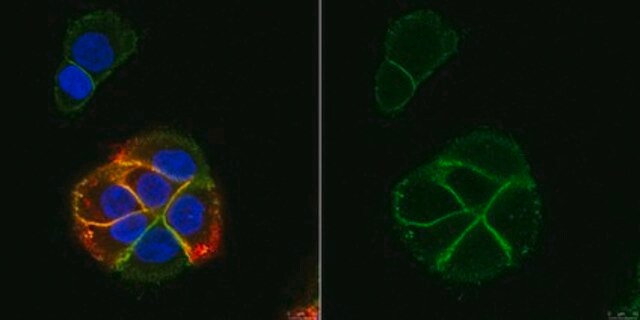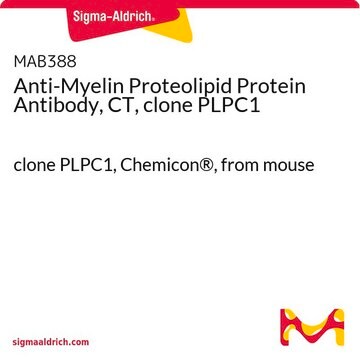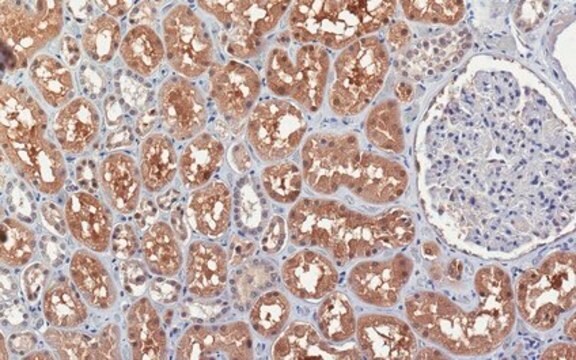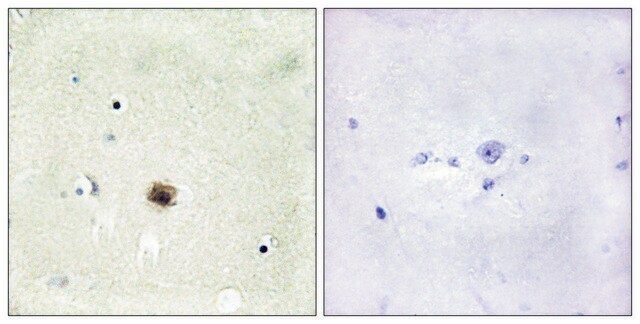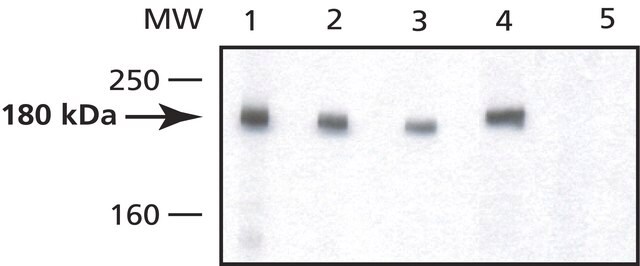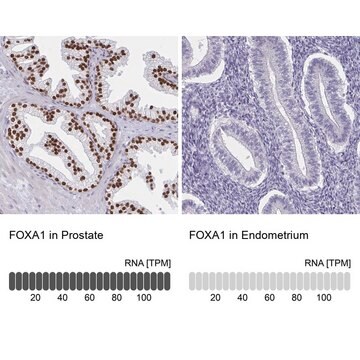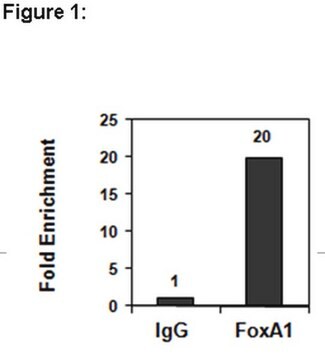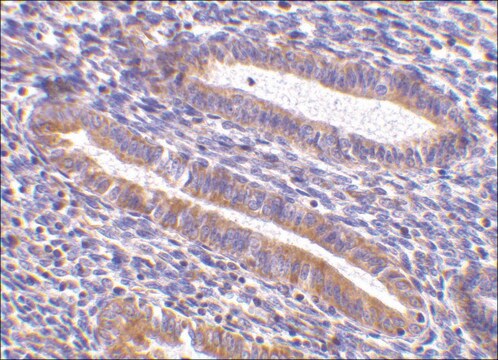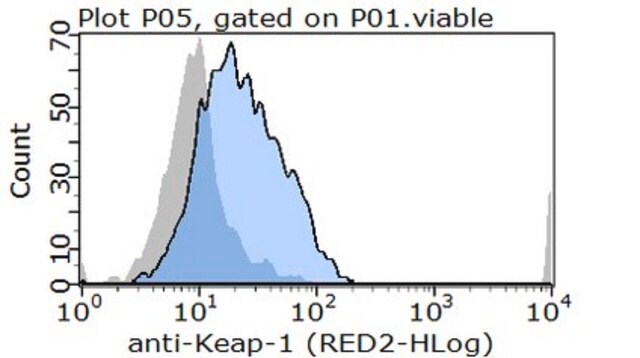MABF2105
Anti-CD6 Antibody, clone UMCD6
clone UMCD6, from mouse
Synonym(s):
T-cell differentiation antigen CD6, T12, TP120
About This Item
Recommended Products
biological source
mouse
antibody form
purified immunoglobulin
antibody product type
primary antibodies
clone
UMCD6, monoclonal
species reactivity
human
packaging
antibody small pack of 25 μg
technique(s)
dot blot: suitable
flow cytometry: suitable
immunoprecipitation (IP): suitable
inhibition assay: suitable
isotype
IgG1κ
NCBI accession no.
UniProt accession no.
target post-translational modification
unmodified
Gene Information
human ... CD6(923)
General description
Specificity
Immunogen
Application
Induces Function: A representative lot showed strong synergistic effect with phorbol ester in inducing T cell activation and enhanced the autologous mixed lymphocyte reaction. (Bott, C.M., et. al. (1993). Int Immunol. 5(7):783-92).
Dot Blot Analysis: A representative lot detected CD6 in Dot Blot applications (Bott, C.M., et. al. (1993). Int Immunol. 5(7):783-92).
Immunoprecipitation Analysis: A representative lot immunoprecipitated CD6 in Immunoprecipitation applications (Bott, C.M., et. al. (1993). Int Immunol. 5(7):783-92).
Flow Cytometry Analysis: A representative lot detected CD6 in Immunoprecipitation applications (Singer, N.G., et. al. (1996). Immunology. 88(4):537-43; Bott, C.M., et. al. (1993). Int Immunol. 5(7):783-92; Bott, C.M., et. al. (1994). J Immunol. 153(1):1-9; Li, Y., et. al. (2017). Proc Natl Acad Sci USA. 114(10):2687-2692).
Quality
Flow Cytometry Analysis: A 1:1000 dilution of this antibody detected CD6 in one million Jurkat cells stimulated with PMA.
Target description
Physical form
Other Notes
Not finding the right product?
Try our Product Selector Tool.
Certificates of Analysis (COA)
Search for Certificates of Analysis (COA) by entering the products Lot/Batch Number. Lot and Batch Numbers can be found on a product’s label following the words ‘Lot’ or ‘Batch’.
Already Own This Product?
Find documentation for the products that you have recently purchased in the Document Library.
Our team of scientists has experience in all areas of research including Life Science, Material Science, Chemical Synthesis, Chromatography, Analytical and many others.
Contact Technical Service